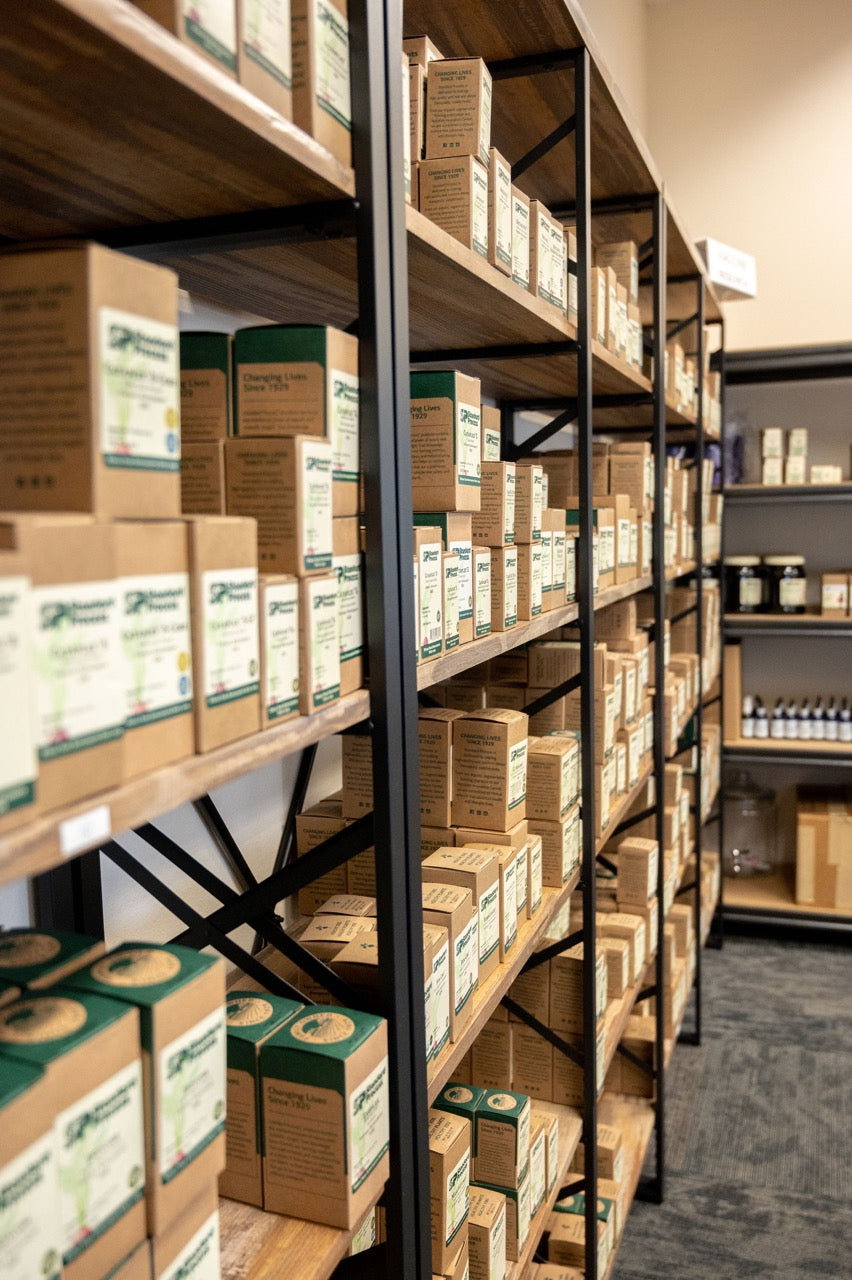Turmeric Benefits:
Discover Why It's Good for Your Health
Turmeric, a golden spice, carries an array of health rewards. Its core strength lies in being rich in curcumin, a powerful antioxidant which plays a pivotal role in overall well-being. But what elevates turmeric's stature even more is its historical usage, as it was a trusted component of ancient Asian medicinal practices for centuries, signifying its time-tested qualities. For an in-depth exposure to this fascinating topic and more health insights, simply continue perusing our site.
Turmeric has been linked to numerous health benefits, including its potential to reduce inflammation, support heart health, aid in managing osteoarthritis, and even potentially prevent certain types of cancer. Additionally, it can be used as a flavorful additive in various dishes and beverages. Nonetheless, consult your healthcare provider before incorporating turmeric into your regimen, especially if you are on medications or have underlying health conditions.

Turmeric: The Golden Spice
Turmeric, with its radiant golden-orange color, captivates not just the eye but also the senses. But what makes this spice so special and sought after? It all starts with the natural compound called curcumin. This potent molecule is packed with antioxidants and anti-inflammatory properties that have led to turmeric being lauded for centuries for its therapeutic effects.
Imagine this: inside the humble root of the turmeric plant lies a powerhouse of potential. Its active ingredient, curcumin, jumps in to shield our cells from damage by neutralizing free radicals, those pesky little molecules that can harm our bodies. These antioxidant properties mean that turmeric might just be more than a spice; it could be a valuable ally in protecting our bodies against the wear and tear of everyday life.
Moreover, curcumin has shown promise in managing chronic conditions like arthritis and heart disease. It doesn't stop there—ongoing research indicates that turmeric may have potential benefits for brain health too, possibly reducing the risk of neurodegenerative diseases like Alzheimer's.
The Heart of Curcumin
Think about curcumin as a protective shield for your body’s cells. Much like how sunscreen shields your skin from harmful UV rays, curcumin shields your cells from the harmful effects of free radicals. It's like having a superhero inside your spice rack!Given these remarkable potentials, dietary inclusion of turmeric could offer a host of health advantages. From aiding in digestion to potentially improving symptoms of depression and anxiety, turmeric appears to hold promise in managing a variety of health concerns.
Just as a warm hug can soothe emotional discomfort, turmeric has been found to have soothing effects on digestive issues. It's like giving your belly a comforting hug from the inside!
Furthermore, newer studies highlight the potential of turmeric in reducing the risk of certain cancers and even improving kidney health.
So you see, there's much more to turmeric than just its vibrant color and flavor—it has the potential to be an invaluable companion in supporting our overall well-being. As research continues to unfold the myriad benefits of curcumin, it's clear that this golden spice holds immense value beyond its culinary use.
As we further explore the health benefits of turmeric, let's dive into how incorporating this golden spice into your daily routine can lead to positive changes in your well-being.
Health Benefits of Turmeric
Turmeric is a treasure trove of good health. The beautiful golden hue of this spice comes from a natural compound found in it called curcumin, which holds an impressive array of health-boosting properties. One of the most impactful benefits of turmeric is its antioxidant and anti-inflammatory prowess.
Antioxidant and Anti-inflammatory Properties
Antioxidants are like superheroes in our bodies, fighting against the villains known as free radicals. These free radicals cause damage to our cells, leading to diseases and signs of aging. Curcumin in turmeric acts as a powerful antioxidant, swooping in to neutralize these free radicals before they cause harm. Regular consumption of turmeric can help maintain this delicate balance between antioxidants and free radicals, keeping your body’s defense system strong.The anti-inflammatory effects of curcumin are equally remarkable. Inflammation is part of our body’s natural defense system, but when it becomes chronic, it can contribute to major health issues such as heart disease, cancer, and various degenerative conditions. Curcumin in turmeric helps calm this inflammatory response down, acting like a soothing balm for your body.
Imagine turmeric as your bodyguard, standing at the gates and preventing troublemakers from getting inside. Its ability to combat oxidative stress and inflammation not only protects you from diseases but also provides relief for those dealing with chronic pain or discomfort caused by inflammation-related conditions.
Curcumin's Role in Health
Curcumin, the primary active component in turmeric, is largely responsible for the various health benefits associated with this golden spice. Its potent anti-inflammatory and antioxidant properties are integral to its potential in disease prevention and management.
The anti-inflammatory effects of curcumin are particularly crucial in maintaining body function. Inflammation, while a necessary response to infections and injuries, can become chronic and contribute to the development of various diseases such as cancer and heart disease. By reducing inflammation, curcumin may help mitigate the risk of developing these conditions. Additionally, curcumin's antioxidant capacity plays a significant role in protecting against cell damage caused by harmful molecules known as free radicals. These free radicals can lead to oxidative stress linked to neurodegenerative disorders like Alzheimer's disease. The ability of curcumin to neutralize free radicals may aid in the prevention or management of such conditions. Moreover, curcumin has shown promise in combating cancer by influencing multiple molecular pathways involved in the growth and spread of cancer cells. Research suggests that it may inhibit the proliferation of tumors and even contribute to the death of cancerous cells, making it a potential adjunct to conventional cancer treatment.
Cardiovascular Health
Let's not forget about the heart! Curcumin has been observed to have a positive impact on cardiovascular health.Turmeric Benefits for Heart Health
-Reduces cholesterol levels
-Improves endothelial function (a key player in regulating blood pressure)
-Aids in preventing blood clot formation
Curcumin's influence on these factors is believed to contribute to a reduced risk of heart disease.
Neuroprotective Effects
As for neurodegenerative disorders, curcumin exhibits properties that may benefit brain health. It can potentially increase the levels of brain-derived neurotrophic factor (BDNF), a growth hormone that functions in the brain. Low levels of BDNF are associated with conditions like depression and Alzheimer's disease, making curcumin an area of interest for potential therapeutic interventions.
The profound impact that curcumin has on various aspects of health underpins its importance as a natural and holistic approach towards disease prevention and overall well-being.
In exploring the vast array of benefits turmeric offers, we gain insight into its capability as an ally in managing inflammation and alleviating pain, which we will examine next.
Anti-Inflammatory and Pain Relief Properties
Curcumin, the active component in turmeric, has been extensively studied for its impressive anti-inflammatory properties. Inflammation is your body's natural response to injury or infection, but when it becomes chronic, it can lead to various health issues, including pain and swelling.
Arthritis is a common condition that causes pain and inflammation in the joints. Research has shown that curcumin can be effective in managing these symptoms by inhibiting certain molecules that play a role in the inflammatory process.
Moreover, several studies have demonstrated the efficacy of curcumin in addressing joint pain caused by age-related wear and tear or conditions such as rheumatoid arthritis. It has shown promise in providing relief from discomfort and enhancing overall joint function.
For instance, a study published in the Journal of Medicinal Food found that curcumin supplementation led to significant improvements in joint tenderness and swelling in patients with rheumatoid arthritis. This underscores the potential of curcumin as a natural alternative for managing chronic joint-related discomfort.
Expanding upon this idea, curcumin's impressive anti-inflammatory abilities extend beyond arthritis and joint pain to offer relief with other health concerns. Let's now explore how this natural compound combats inflammation in other areas of the body.
Turmeric for Skin Enhancement
You've probably heard of using turmeric in cooking, but did you know that it also holds remarkable benefits for your skin? Indeed, turmeric is not just for adding color and flavor to your favorite dishes; it has been a staple in traditional beauty rituals for centuries, thanks to its powerful and luxurious properties.
One of the most appealing benefits of turmeric for the skin is its potential to address acne and blemishes. This golden spice has natural antibacterial and anti-inflammatory properties that can help combat acne-causing bacteria and reduce redness and inflammation. Additionally, its antioxidant components are believed to contribute to a clearer complexion by fighting off free radicals that can lead to skin damage.
Moreover, turmeric's anti-inflammatory effects can aid in soothing various skin irritations, including dryness, redness, and itching. Whether it's a bit of sunburn or a pesky insect bite, the application of turmeric might assist in calming these irritations, providing relief from discomfort and promoting overall skin well-being.
It's important to note that while turmeric offers potential benefits, it's always best to perform a patch test before incorporating it into your skincare routine, particularly if you have sensitive skin. This can help you evaluate how your skin responds to turmeric and prevent any adverse reactions.
For example, the Rose Hip Turmeric Gel Face Wash is an effective skincare product that harnesses the skin-enhancing properties of turmeric. Infused with all-natural ingredients, including rose hip oil and turmeric, this face wash fades dark spots, evens out skin tone, and promotes a natural glow—all while being gentle on the skin.
Cardiac Benefits of Turmeric
When it comes to overall wellness, heart health plays a vital role. Turmeric has been gaining attention for its potential to support cardiovascular wellness, and recent research has highlighted its promising effects.
One of the key benefits of turmeric for heart health is its potential to reduce cholesterol levels. High cholesterol levels can lead to a buildup of plaque in the arteries, increasing the risk of heart disease. Turmeric contains compounds that may help lower levels of "bad" LDL cholesterol while simultaneously raising levels of "good" HDL cholesterol.
Reducing cholesterol levels is just one piece of the puzzle in maintaining heart health. A well-rounded approach which includes a balanced diet, regular exercise, and stress management is also crucial.
In addition to influencing cholesterol levels, turmeric is believed to have anti-inflammatory properties. Inflammation within the cardiovascular system can contribute to the development of various heart conditions. By reducing inflammation, turmeric may help support the overall health of the heart and blood vessels.
Moreover, turmeric's antioxidant properties are thought to play a role in protecting the cardiovascular system from oxidative stress. Oxidative stress occurs when there is an imbalance between free radicals and antioxidants in the body, potentially leading to damage in cells and tissues. The antioxidants found in turmeric work to neutralize free radicals, thereby shielding cells and supporting overall cardiovascular health.
Research Support
Several studies have investigated the potential cardiac benefits of turmeric. While more extensive research is needed, initial findings have been promising. For instance, a 2017 review published in the journal Nutrients suggested that curcumin, the active compound in turmeric, may offer protective effects against heart disease by modulating lipid metabolism, reducing inflammation, and improving endothelial function.
In summary, while turmeric's role in promoting heart health is still being thoroughly studied, emerging evidence indicates that it may contribute to cardiovascular wellness by reducing cholesterol levels, combating inflammation, and providing antioxidant protection. As always, it's important to consult with a healthcare professional before incorporating new supplements or significant dietary changes into your routine, especially if you have existing cardiovascular concerns.
As we continue our exploration of turmeric's impact on health, let's now turn our attention to its potential role in disease prevention.
Turmeric for Disease Prevention
Cancer is a topic that touches the lives of many people, directly or indirectly. The very word can stir up fear and uncertainty, but there is hope in prevention—and turmeric may have a role to play in this area.
Cancer Prevention
The potent phytonutrients in turmeric, particularly curcumin, have been associated with potential protective effects against certain types of cancer. Research has suggested that curcumin may help inhibit the growth and spread of cancer cells in the body, making it an important component of a disease-preventive diet.
For instance, studies have shown that curcumin can target and reduce the activity of cancer-causing enzymes, slow down the spread of cancerous cells, and even promote the self-destruction of malfunctioning cells. This makes it a promising addition to a proactive approach against cancer.
While these findings are intriguing, they are not yet conclusive. More extensive research is needed to fully understand the potential of turmeric in cancer prevention. However, even with current knowledge, incorporating turmeric into a balanced diet can be a positive step towards overall wellness.
In many cultures, spices like turmeric are used not just for flavor but also for their perceived health benefits. Turmeric has demonstrated its worth as a versatile spice – it's more than just a flavorful addition to your cooking; it's potentially a small but significant step toward promoting good health.
As we've seen, turmeric holds promise in disease prevention, particularly in the realm of cancer. Now let's explore its culinary uses and how it can elevate our everyday cooking experiences.
Culinary Uses of Turmeric

Turmeric isn't just good for your health; it's also a powerhouse of flavor that can transform your meals into culinary masterpieces. It brings a warming and earthy aroma, along with a beautiful golden hue to dishes, making it a versatile ingredient that can elevate both savory and sweet recipes.
In Indian cuisine, turmeric is an indispensable spice, adding depth to a variety of dishes. Its warm, peppery flavor pairs beautifully with spices such as cumin, coriander, and ginger. A pinch of turmeric can turn ordinary rice into a vibrant side dish or add richness and vibrancy to creamy curries. Many traditional Indian dishes, like aromatic lentil-based dals and flavorful vegetable stir-fries, rely on turmeric for its unique taste.
Beyond Indian cuisine, turmeric has found its way into different global recipes, thanks to its ability to add a touch of warmth and complexity. For instance, if you enjoy experimenting with new flavors in the kitchen, try infusing turmeric into a refreshing mango lassi or blending it with coconut milk for a comforting golden milk latte.
Another way to enjoy the benefits of turmeric is by incorporating it into salad dressings. By mixing turmeric with olive oil, lemon juice, honey, and a sprinkle of black pepper, you can create a zesty dressing that not only adds flavor but also boosts the nutritional value of your salad.
Additionally, you can easily integrate turmeric into everyday recipes like egg scrambles, smoothies, soups, and even baked goods. It's a simple yet effective way to introduce this valuable spice into your diet without overpowering other flavors in the dish.
By skillfully using turmeric in diverse recipes, you can infuse your meals with an extra burst of flavor while reaping its potential health benefits. Now let's delve deeper into some creative ways to make the most of this golden-hued spice in your culinary adventures.
From vibrant Indian curries to soothing golden milk lattes and zesty salad dressings, turmeric proves to be an impressive addition to an array of recipes. Embrace its flavors and colors to elevate your culinary creations while enjoying its potential health-boosting properties.






